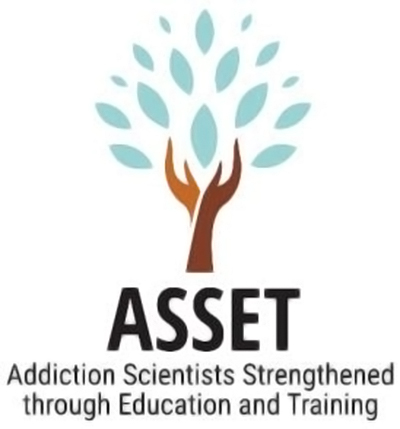Faculty Mentors
| Name (Last, First) | Primary Appointment | Substantive Research Interests | Methodological Expertise |
|---|---|---|---|
| Brouwer, Kimberly | UCSD, Medicine | Mobility of substance users; co-morbidities associated with SUD | GIS; mixed methods; molecular & spatial epi. |
| Cherner, Mariana | UCSD, Psychiatry | Neurological and neurobehavioral effects of substance use and HIV; MDMA and meth | Neuropsychological assessments |
| Corliss, Heather | SDSU, Public Health | Development of SUD in adolescents and young adults; LGBT | Large surveillance health surveys; social media data |
| Gaines, Tommi | UCSD, Medicine | Socio-structural risk factors for SUD; SUD among AI/AN | Bayesian and agent-based modeling, GIS |
| George, Olivier | UCSD, Medicine | Neurobiology of alcohol, nicotine, and SUD; development of novel treatment approaches | Neuropsychopharmacology molecular biology, animal models, preclinical testing |
| Kiene, Susan | SDSU, Public Health | Alcohol, substance use, and HIV risk; sub-Saharan Africa; interventions | Momentary Ecological Assessment; Diary Methods |
| Marienfeld, Carla | UCSD, Psychiatry | SUD health outcomes & service utilization; opioid use disorder; addiction psychiatry | Biochemistry; clinical and translational research |
| Marinkovic, Ksenija | SDSU, Psychology | Effects of alcohol on the brain; binge drinking; cognitive functions | Multimodal brain imaging, neurocognitive research |
| Martin, Natasha | UCSD, Medicine | Modeling scenarios for HCV, HIV & overdose among SUD populations; Drug policy | Population dynamics modeling, Cost- effectiveness |
| Mattson, Sarah | UCSD, Psychiatry | Understanding the effects prenatal exposure to alcohol and drugs | Neuropsychology, Cognitive neuroscience, |
| Montag, Annika | UCSD, Pediatrics | Perinatal drug exposures among minority populations, especially AI/AN; SBIRT | Pharmacology; social network analysis; clinical assessments |
| Pitpitan, Eileen | SDSU, Social Work | Substance-use related syndemics (HIV, mental health, violence, stigma); interventions; alcohol, meth, heroin | structural equation modeling; mediation/moderation; multilevel modeling |
| Reed, Mark | SDSU, Social Work | Substance use etiology and prevention; alcohol; tobacco; cannabis; screening, brief intervention, referral (SBIRT) | SBIRT; alcohol measurement; experimental and field studies; Big data analytics |
| Smith, Laramie | UCSD, Medicine | Substance use stigma, engagement in substance use prevention and treatment services | Mixed method intervention development and evaluation |
| Stockman, Jamila | UCSD, Medicine | Intersection of substance use and violence; health disparities among Black and Latinx women | Biological assessments (cortisol, other biomarkers); interventions |
| Strathdee, Steffanie | UCSD, Medicine | Structural interventions to reduce SUD-related harms, evaluation of drug policies | Epidemiology; surveillance; RCTs; cohort studies |
| Taffe, Michael | UCSD, Psychiatry | cognitive and physiological disruptions associated with toxic exposure to abused drugs | Neuropharmacological assessments (Opioids, meth & cannabidiol); rodent self-administration |
| Tapert, Susan | UCSD, Psychiatry | Neurocognitive functioning in adolescent substance users; clinical research | Neuropsychological testing; MRI; diffusion tensor imaging |
| Urada, Lianne | SDSU, Social Work | Intersection SUD, sex trade/human trafficking, HIV & gender-based violence | Longitudinal analysis; community-based intervention research; survey data analysis |
| Zúñiga, Maria Luisa | SDSU, Social Work | SUD & disparities, care access and utilization; U.S.-Mexico border health among Latinx/Chicanx | Community-engaged research; clinical trials; qualitative research |
Our ASSET core faculty from SDSU and UCSD personify the rich history of institutional collaboration, both on joint doctoral programs, as well as on research, education, and training. The 20 Core Faculty who have committed to ASSET share a common trait – excellence in mentoring and a commitment to research with underrepresented or marginalized communities.
Together, the Core Faculty cover all of NIDA’s priority focus areas outlined in the 2016-2020 Strategic Plan, and their experience spans a range from opioids, methamphetamines, cannabis, alcohol and tobacco, injecting drug use, as well as expertise on co-occurring infections including HIV, TB, viral hepatitis, STIs, and COVID-19. Our strength as a discipline-diverse team of researchers and mentors will serve our scholars well as they become part of interdisciplinary teams themselves and develop their skills to effectively engage scientists from across disciplines in community-relevant research. Expertise in mental health includes schizophrenia, major depression, trauma, and PTSD. They also represent diversity in research backgrounds (e.g., epidemiology, psychiatry, psychology, neuroscience, biostatistics, health promotion and global health), ethnicity, and seniority. Faculty study population diversity includes the underserved populations on which they focus their research, including Latinx, Black, and American Indian, Alaska Native (AI/AN) populations. Core Faculty have experience with state-of-the-art methodologies and measurements in substance use research, including neuroimaging, randomized controlled trials, cohort studies, advanced quantitative methods, community-engaged research, and geographic information systems (GIS).
Fellows will receive training and support from their ASSET Mentoring Team, which consists of a Primary Mentor, Secondary Mentor (both from the list of Core Faculty below), and an Institutional Mentor. Mentoring teams are selected based on research or training fit with Fellow’s research profile and areas of planned research and professional growth. The Institutional Mentor will be someone from the Fellow’s home institution who has committed to supporting the Fellow through the ASSET program and beyond. This individual is selected by the Fellow and is stated in the application.
